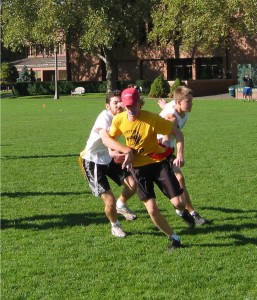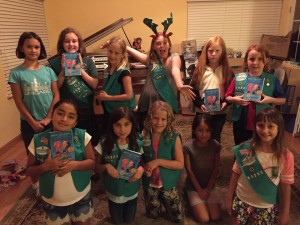This is part two of my series on Friendship Q & A with kids. Today I’ll focus on specific friendship problems caused by ineffective communication (which includes no communication at all!) Part 1 of the series, which started last week, deals with general questions about friendship. All of the questions in this series came to me from a group of 4th-8th graders. Enjoy the exchange and please use them as discussion drivers with your own children and/or students.

Friendship can feel like a struggle for control
1. “My bff is super sensitive and sometimes when I’m not trying to be mean to her, it comes across mean and I’m trying to not do that but it’s hard because she’s more sensitive than me. So I’m wondering how to avoid hurting her feelings.”
Good communication is often a challenge… and not just for kids! From time to time even the most intelligent adults have trouble in this area too. You have probably already noticed that words are powerful. They can be used for helping or hurting. For example, by choosing the right words, you can encourage someone when they’re ready to give up. With just your words, you can calm someone who’s upset. You can use words to share your enthusiasm and to show love and appreciation. Positive words are truly amazing!
On the other hand, words can hold negative power and sometimes what we say and the way we say it hurts people. That can happen when we’re angry and purposely using words to try to “get back at” someone for something they’ve done to us. Or something we think they’ve done. But sometimes, even without trying to hurt anyone… without trying to “be mean,” our words can hurt people anyway.
You’ve asked a great question and I’m really proud of you for wanting to “avoid hurting” your bff’s feelings. With people who are “super sensitive” it pays to be super careful choosing your words, your tone of voice and your attitude. And you can do that! The other thing you can do is to talk to your friend about this situation. You might say, “You know how sometimes I say something, without trying to be mean, and your feelings get hurt? I feel really bad when that happens. What can we change so that doesn’t happen as much?”
When friends can talk to each other about misunderstandings they end up with all-around better communication. When you’ve got that, there’s a good chance both friends will do a better job taking care of the friendship.
2. “My friend does this thing when he’s done talking and I start to talk but then he starts to talk when I’m in the middle of my sentence. I can’t talk. What can I do?”
Sometimes people get so excited about what they want to say, they interrupt other people. When it happens once in a while it’s not a big deal. But it sounds like this happens to you often with this friend. It also sounds like maybe you haven’t yet talked to him about it.
You are your friend’s teacher. Sounds strange, but it’s true. We teach our friends how we want to be treated. If, for example, you keep quiet when your friend cuts you off in the middle of your sentence, then you are “teaching” him that it’s OK to do that. I know you don’t like it, but if you don’t speak up, he thinks you don’t mind. So… what you need to do is teach him that you don’t appreciate his cutting you off that way. You don’t have to make a big deal about it. You just need to say something like this, “Sometimes when I’m talking, you start to talk right in the middle of my sentence. That bothers me.” Then close your mouth and LISTEN to what he has to say about it. My guess is that he probably not aware of this habit he’s gotten into. So all you have to say is, “If you don’t know what I’m talking about, I’ll just let you know next time it happens.” And make sure that you do just that!
Oh, and one more thing… be cool. If you jump on the guy and get angry with him, as in “There! You see!? You’re doing it again!!” You’ll probably end up creating a lot of stress in the friendship. Instead, the next time he does it (after you two have talked about it) just put up your hand and say “Hold on. Let me first finish what I was saying.” That ought to fix the problem.
3. “What do you do when you and your friend had a fight and you want to make up but you don’t know what to say?”
Friends have fights and people get angry. But if friends value the friendship, they’ll cool off after a while and agree to talk about what happened. That’s called Making the Peace. It takes two people to have an argument and it takes both of them to work together to get to the bottom of the disagreement. Sometimes it’s hard to say “I’m sorry.” Sometimes saying, “I’m sorry” isn’t enough. The first step in Making the Peace is to come together and talk, calmly and respectfully to each other (not about each other behind his/her back). Give each person a chance to tell his/her side of the story. When Friend A is talking, Friend B gets to LISTEN. No interrupting No correcting. No eye-rolling. No texting! When Friend B tells their side of the story, Friend A just LISTENS. Learn what the other person was thinking and feeling during the fight. Figure out a way to handle things differently the next time. You can do it!
The following two questions are so similar so I put them together in my answer.
4. “What should you do when your best friend ignores you?”
5. “If one of my best friends is mad and nothing is making him happy and he won’t talk to me to make it better, what do I do?”
It’s very difficult for two people to communicate effectively if one person isn’t talking. Two friends can’t get to the bottom of the problem or work on it together if one person has shut out the other one. Maybe writing an email or an old-fashioned letter would help in both of these situations. The message would be simple and straight forward: “What has happened to our friendship? I want to talk to you about it.”
If you don’t get an answer, then maybe it’s time to take a vacation from the drama of this friendship. Instead, of stressing out about getting the silent treatment, reach out to other friends and/or try to make some new ones. Real friends don’t ignore each other and don’t shut off communication when they’re mad. You deserve to be with friends who treat you like a real friend.














